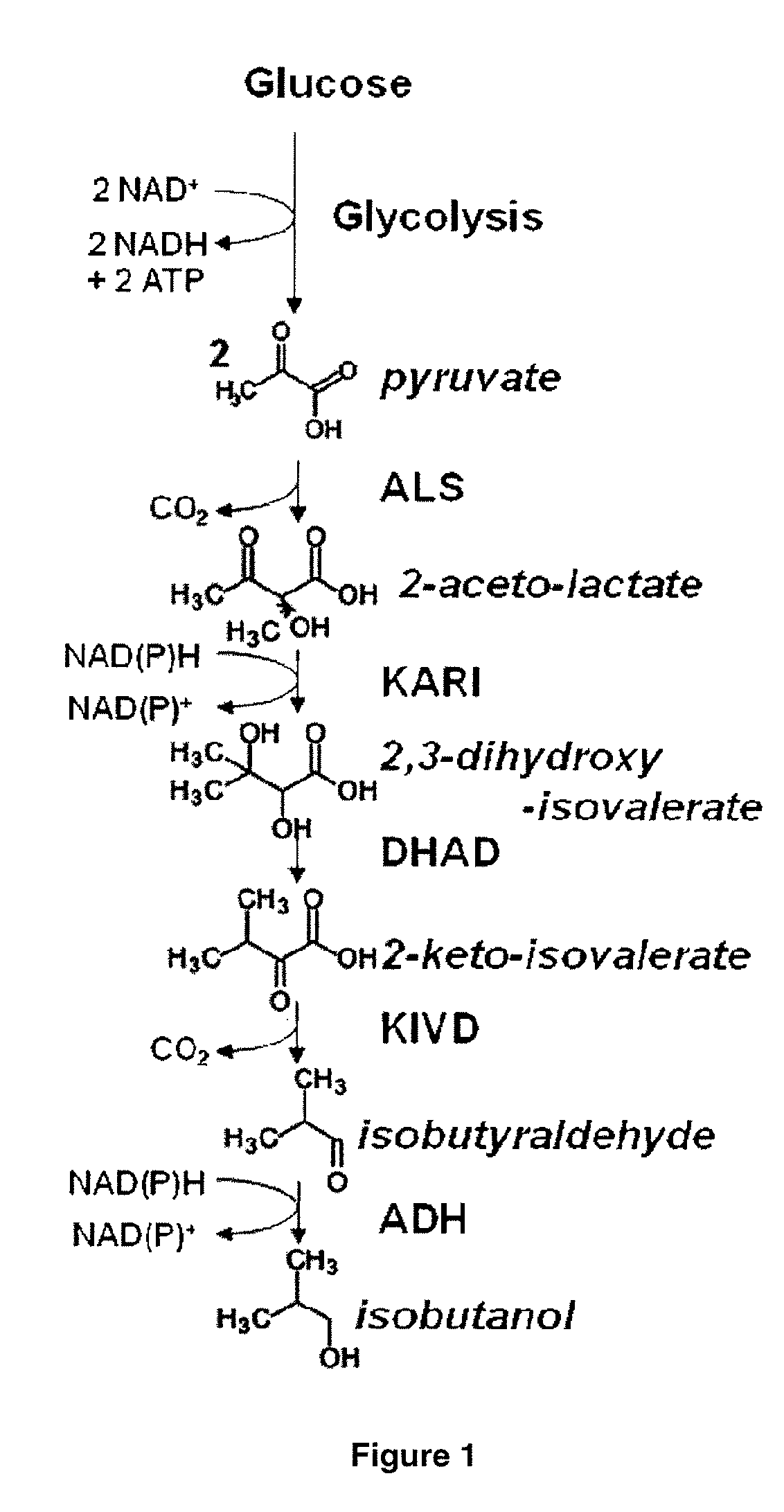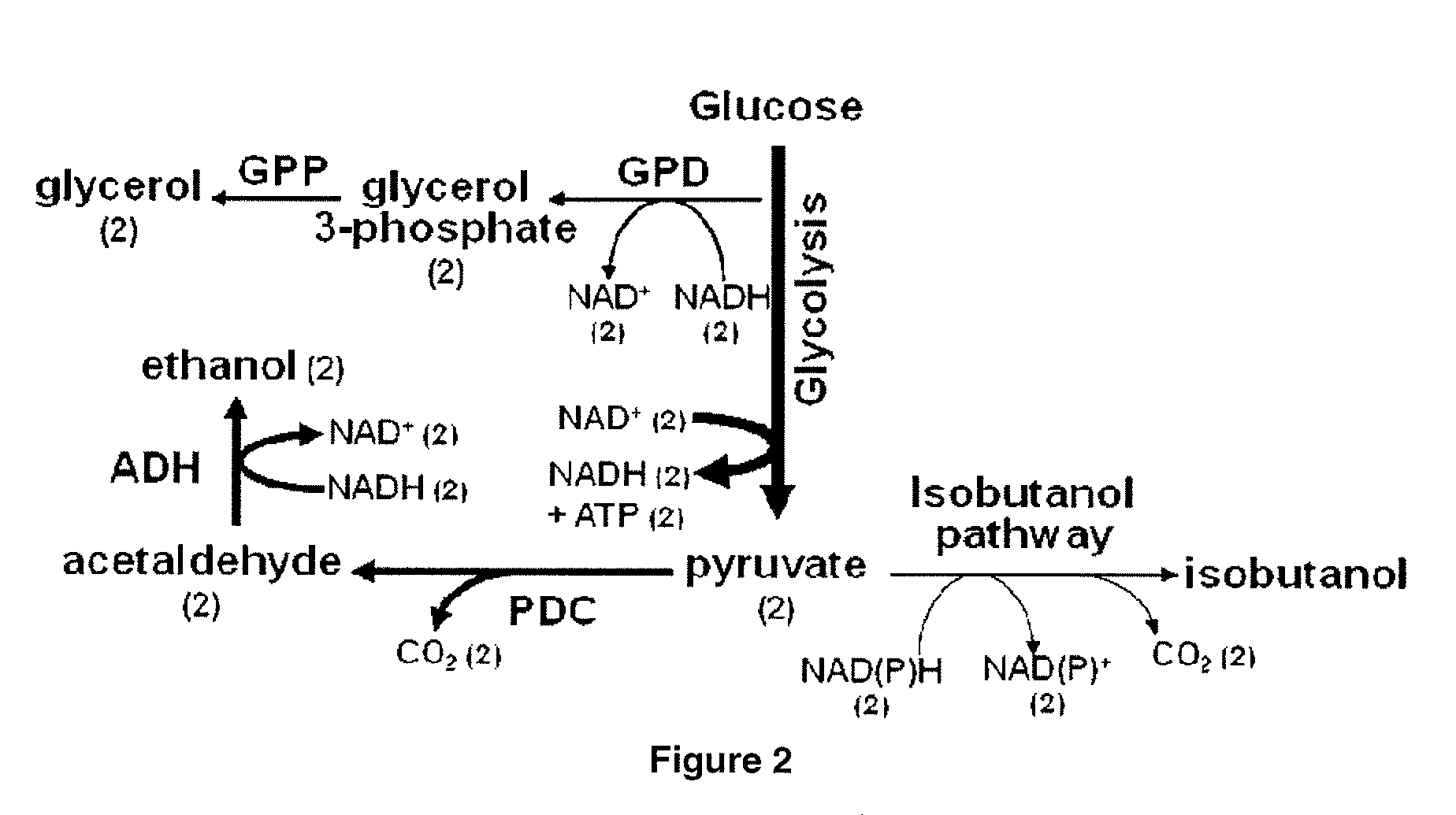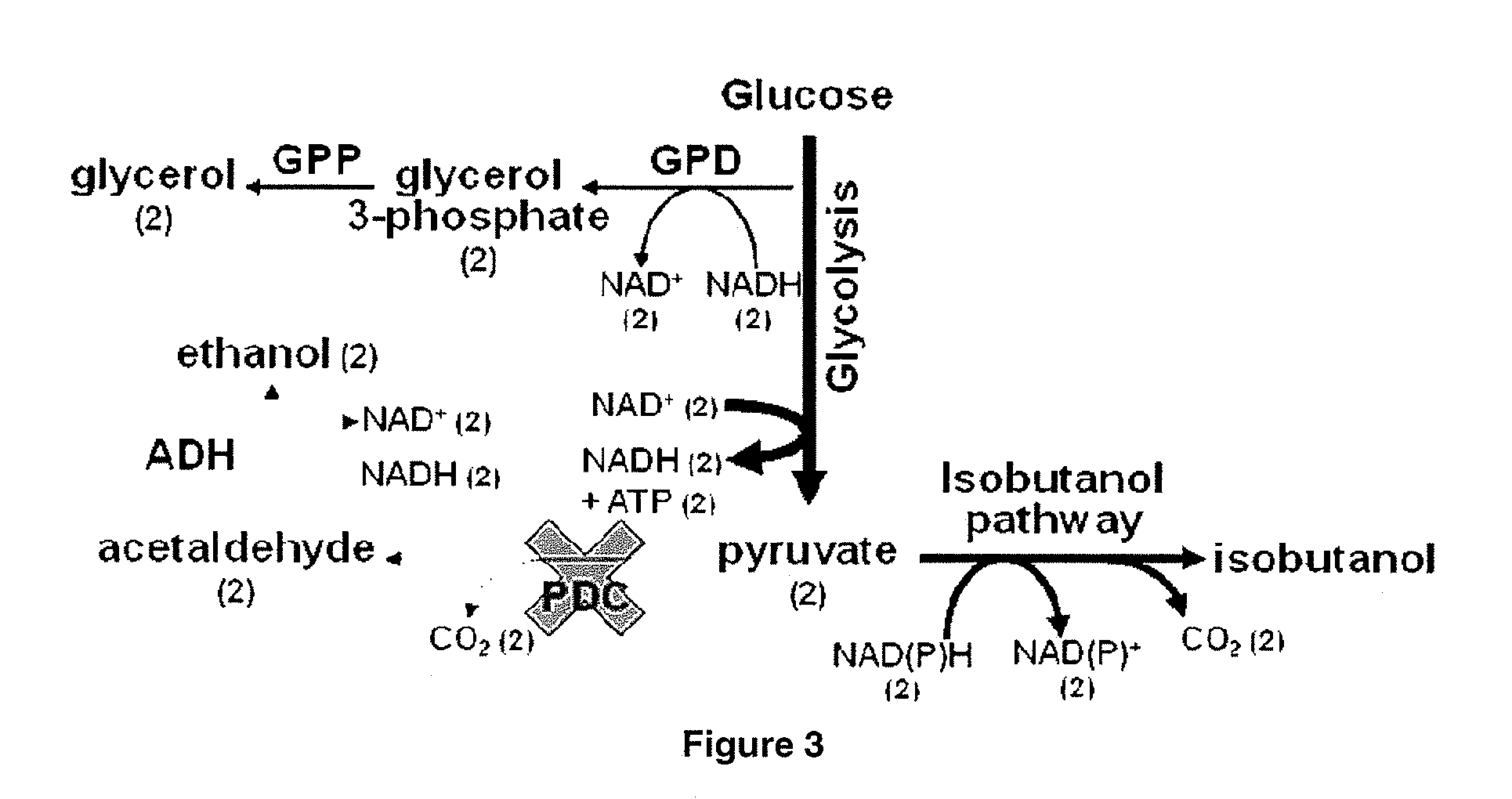Yeast organism producing isobutanol at a high yield
a technology of isobutanol and yeast, which is applied in the direction of lyase, transferase, carbon-carbon lyase, etc., can solve the problems of increasing the demand for domestically produced biofuels, increasing the cost of fuel, and increasing the demand for alternative fuels, so as to reduce the activity of pyruvate decarboxylase (pdc), reduce the activity of glycerol-3-phosphate dehydrogena
- Summary
- Abstract
- Description
- Claims
- Application Information
AI Technical Summary
Benefits of technology
Problems solved by technology
Method used
Image
Examples
example 1
Construction and Confirmation of PDC Deletion in K. lactis
[0340]The purpose of this Example is to describe how a PDC-deletion variant of a member of the Saccharomyces clade, Crabtree-negative yeast, pre-WGD yeast K. lactis was constructed and confirmed.
[0341]Construction of plasmid pGV1537: Plasmid pGV1537 (SEQ ID NO: 1) was constructed by the following series of steps. All PCR reactions carried out to generate pGV1537 used KOD polymerase (Novagen, Inc., Gibbstown, N.J.) and standard reaction conditions according to the manufacturer. A first round of two PCR reactions was carried out, wherein one PCR reaction contained primers 1006 and 1016 and used approximately 100 ng of genomic DNA from K. lactis strain GEVO1287 as a template. The other first-round PCR reaction contained primers 1017 and 1009 and approximately 100 ng of genomic DNA from K. lactis strain GEVO1287 as a template. The two resulting PCR products (approximately 530 bp and 630 bp in size, respectively) were gel purifie...
example 2
Construction and Confirmation of PDC Deletion in S. cerevisiae
[0347]The purpose of this Example is to describe how a PDC deletion variant of a member of the Saccharomyces sensu stricto yeast group, the Saccharomyces yeast clade, a Crabtree-positive yeast, and a post-WGD yeast, S. cerevisiae was constructed and confirmed.
[0348]Strains GEVO1537 and GEVO1538 were incubated in 1% potassium acetate for 3-4 days which induces sporulation. The resulting haploid spores were recovered by random spore analysis. Briefly, a culture of sporulating cells was examined microscopically to ensure that a sufficient fraction of cells had sporulated (>10%). Five (5) mL of a culture of sporulated cells were collected by centrifugation (5 minutes at 3000×g) and washed once in 1 mL of water. The cells were resuspended in 5 mL water to which was added 0.5 mL of a 1 mg / mL solution (freshly made) of Zymolyase-T (in water) as well as 10 μL of β-mercaptoethanol. The cell suspension was incubated overnight at 3...
example 3
Other Pdc-Minus S. cerevisiae Strains
[0356]S. cerevisiae engineered to be deficient in PDC activity have been previously described: (Flikweert, M. T., van der Zanden, L., Janssen, W. M. T. M, Steensma, H. Y., van Dijken J. P., Pronk J. T. (1996) Yeast 12(3):247-57). Such strains may be obtained from these sources.
PUM
 Login to View More
Login to View More Abstract
Description
Claims
Application Information
 Login to View More
Login to View More - R&D
- Intellectual Property
- Life Sciences
- Materials
- Tech Scout
- Unparalleled Data Quality
- Higher Quality Content
- 60% Fewer Hallucinations
Browse by: Latest US Patents, China's latest patents, Technical Efficacy Thesaurus, Application Domain, Technology Topic, Popular Technical Reports.
© 2025 PatSnap. All rights reserved.Legal|Privacy policy|Modern Slavery Act Transparency Statement|Sitemap|About US| Contact US: help@patsnap.com



